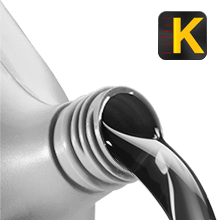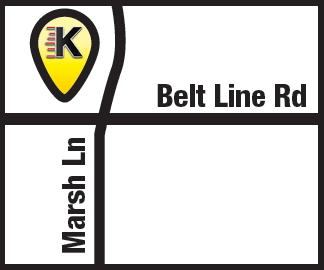 Kwik Kar Lube and Auto Repair offers many different brands of motor oil. Engine oil works by separating and lubricating moving parts, reducing engine wear, helping prevent deposits from forming on internal engine components, removing and suspending dirt and contaminants in the oil until these contaminants can be removed at the next oil change, cooling engine parts, enhancing engine fuel economy, providing protection over a wide temperature range and even helping to protect the emissions system. In other words, they do a lot more than just lubricate.
Kwik Kar Lube and Auto Repair offers many different brands of motor oil. Engine oil works by separating and lubricating moving parts, reducing engine wear, helping prevent deposits from forming on internal engine components, removing and suspending dirt and contaminants in the oil until these contaminants can be removed at the next oil change, cooling engine parts, enhancing engine fuel economy, providing protection over a wide temperature range and even helping to protect the emissions system. In other words, they do a lot more than just lubricate.
Engine oil is comprised of two basic components—base oils and additives. The base oils constitute 70 to 85 percent of the total, while additives round out the remaining 15 to 25 percent.
Changing your Oil every 3,000 or 5,000 miles helps your car in the following ways:
Helps Clean Your Engine
Motor Oil helps keep your engine clean. Dirt is created inside your engine as part of the normal combustion process, so keeping engine components clean is essential. If your engine components and oil passages are dirty, your vehicle performance and efficiency suffer. Deposits also trap heat inside your engine like an insulating blanket. Getting an oil change helps remove sludge.
Protects Engine
Motor oil not only prevents sludge prevent sludge, they are designed to clear away sludge, dirt, debris and deposits from engine components and prevent blockages of important oil pathways. The oil locks up the dirt, rendering it harmless until it is removed at the next oil change.
Reduces Friction and Minimizes Wear
Motor oils form a protective film over your engine components and have special additives between moving surfaces, preventing contact and reducing drag. This helps your engine to operate as quietly and effectively as the day it left the factory.
Removes Heat
Motor oils carry heat from hot areas, such as around the piston rings where temperatures can top 600F, helping to protect critical parts from intense heat.
Prevents Corrosion and Rust
Motor oils protect your hardworking engine components from oxidation, and the resulting corrosion, over the normal oil-change interval.



Leave a Reply